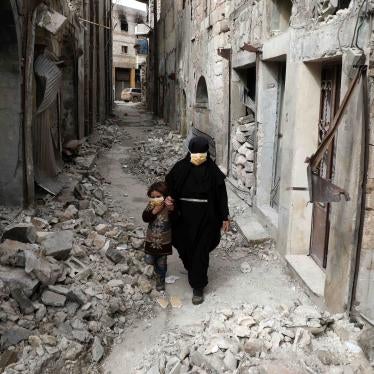The fighting in Yemen over the past year has been unimaginably grim – yet has largely gone unnoticed.
At least 2,000 civilians have been killed since March 2015, according to the United Nations human rights office – the majority of them in airstrikes conducted by a Saudi-led regional coalition. Human Rights Watch on-the-ground research has uncovered numerous serious violations of international humanitarian law – the laws of war – by all sides to the conflict, many amounting to war crimes.
Coalition airstrikes have repeatedly struck buildings and killed civilians where there was no evident military target. Coalition forces have also used cluster munitions, which are banned under an international treaty. Meanwhile, Houthi forces have indiscriminately launched rockets toward populated areas in both Yemen and across the border into Saudi Arabia. They also laid banned anti-personnel mines in around Aden, Abyan, and Lahj. Southern forces in Aden have executed suspected Houthis.
When the UN Human Rights Council meets today, it will consider a report from the UN high commissioner for human rights that recommends an “international, independent and impartial” investigation into alleged war crimes by all sides in Yemen, as well as apparent violations of international humanitarian law that have resulted in serious injury or death.
It’s just over a year since the Human Rights Council asked for the high commissioner’s report, and as reports of abuses mount, it’s critical that the council swiftly accepts this recommendation.
States that are parties to armed conflicts are required under international humanitarian law to investigate alleged war crimes and bring those responsible to justice. The coalition hasn’t done so. It’s crucial therefore for the Human Rights Council to put coalition members including Morocco, Qatar, Saudi Arabia, and the United Arab Emirates on notice that they will be held responsible for laws-of-war violations.
The Netherlands, lead drafter of the Yemen resolution, should push for the establishment of an independent international inquiry into abuses by all sides. And the US and the UK, strong backers of the Saudi-led coalition, should support the inquiry – otherwise they risk becoming associated with further coalition abuses.
Given the failure of the warring parties to abide by their international obligation to investigate alleged war crimes in Yemen, the UN Human Rights Council needs to step in decisively. The safety of Yemen’s civilians depends on it.










